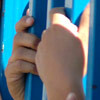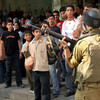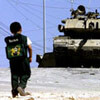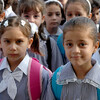
Coexistence in Gaza
28 November 2007
GAZA CITY, November 27 (IPS) - As Sunday dawns in Gaza City the traditional Islamic call to prayer mingles melodically with church bells. Side by side, mosque and church doors swing open, welcoming the faithful. Greetings are eagerly exchanged. The October kidnapping and murder of Rami Ayyad, the manager of Gaza’s only Christian bookstore, sent shudders through the Christian community. Was this a hate crime or simply a tragic occurrence? Monsignor Manuel Musallam, head of Gaza’s Roman Catholic community, doubts the attack was religiously motivated. Read more about Coexistence in Gaza








